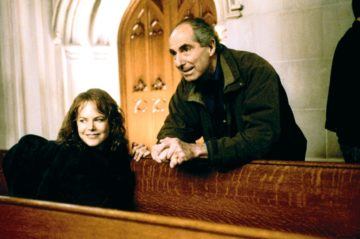Fintan O’Toole in Prospect Magazine:
The most  most gut-wrenching exploration of what it feels like to be cancelled is in a novel written long before that term had become a weapon in the culture wars. In Philip Roth’s The Human Stain, published in 2000, Coleman Silk, a professor and former dean at the fictional Athena College, is teaching a seminar with 14 students.
most gut-wrenching exploration of what it feels like to be cancelled is in a novel written long before that term had become a weapon in the culture wars. In Philip Roth’s The Human Stain, published in 2000, Coleman Silk, a professor and former dean at the fictional Athena College, is teaching a seminar with 14 students.
By the sixth week, two of them have yet to appear. Silk opens the class by asking “Does anyone know these people? Do they exist or are they spooks?” He is using the word as a synonym for ghosts. But it also has a long history as a term of abuse for African-Americans. He does not know that the two students he has never seen are both black. This does not matter. Silk is branded a racist. (In a twist, he is later revealed to be African-American but passing as Jewish.) He endures a two-year purgatory of accusations and investigations. None of his colleagues have the courage to defend him. He resigns in disgrace. His life unravels.
Roth’s initial scenario seems absurd, but it actually happened. In 1985, the Princeton sociologist Mel Tumin—ironically a greatly respected expert on race relations—uttered exactly those words in precisely the same context. Tumin—a friend of Roth’s—was accused of hate speech and placed under investigation by the university’s authorities.
More here.
